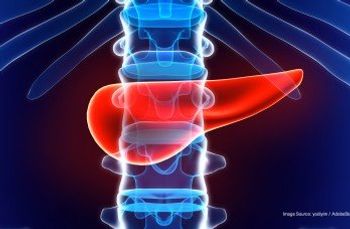
Post-Op RT Improves Survival in Incompletely Resected NSCLC
Use of post-operative radiotherapy was associated with better overall survival in patients with incompletely resected stage II/III non-small-cell lung cancer.
The use of post-operative radiotherapy (PORT) was associated with better overall survival in patients with incompletely resected stage II/III non–small-cell lung cancer (NSCLC) in a new retrospective study.
“An estimated 1% to 17% of surgical resections for NSCLC result in positive surgical margins or gross residual disease,” wrote study authors led by James B. Yu, MD, MHS, of Yale School of Medicine in New Haven. The evidence regarding PORT to improve survival in these patients, however, has been lacking.
The new study included 3,395 patients from the National Cancer Center Data Base with stage II or III NSCLC who had undergone a lobectomy or pneumonectomy with positive surgical margins; of those, 1,207 (35.6%) received PORT. Results of the study were
Patients who were less than 60 years old, were treated in non-academic facilities, had an earlier year of diagnosis, decreased travel distance, lower nodal stage, and had undergone chemotherapy were more likely to receive PORT after surgery. The use of PORT reached a high of 42% in 2005, and a low of 30.5% in 2010.
Only a cohort of 1,304 patients diagnosed from 2003 to 2006 were included in the survival analysis. The median overall survival was 33.5 months for PORT patients, compared with 23.7 months for those who did not undergo PORT; the unadjusted 5-year survival rates were 32.4% with PORT and 23.7% without.
The hazard ratio (HR) for mortality on multivariable analysis was 0.80 (95% CI, 0.70-0.92; P = .002). The other significant predictors of increased mortality were age, male gender, Medicare as the primary payer, a travel distance for treatment between 20 and 50 miles, the use of chemotherapy, and stage and tumor size. PORT also significantly improved survival for all nodal stages, with the strongest effect seen in N0 disease (HR = 0.67; 95% CI, 0.49-0.91; P = .010).
“We found that use of PORT is robustly associated with improved survival in patients with incompletely resected stage II or III N0-2 NSCLC,” the authors concluded. They acknowledged the inherent limitations of retrospective analyses, and wrote that the findings should be confirmed using other data sets.
“In the absence of randomized trials evaluating PORT utilization for this patient population, our findings support the delivery of PORT in patients with incompletely resected NSCLC,” the researchers wrote.
Newsletter
Stay up to date on recent advances in the multidisciplinary approach to cancer.











































